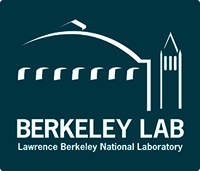Newswise — Two scientists with the U.S. Department of Energy’s Lawrence Berkeley National Laboratory (Berkeley Lab) are among 315 researchers named on July 2 by President Donald Trump to receive the prestigious Presidential Early Career Award for Scientists and Engineers (PECASE), the highest honor bestowed by the United States government on early-career researchers. Two faculty scientists jointly affiliated with Berkeley Lab and UC Berkeley are also among those selected to receive the honor.
The recipients are Jim Ciston, a staff scientist with Berkeley Lab’s Molecular Foundry; Jacklyn Gates, Heavy Elements Group Leader in Berkeley Lab’s Nuclear Science Division; Lin Lin, a faculty scientist with Berkeley Lab’s Computational Research Division and associate professor of mathematics at UC Berkeley; and Wenjun Zhang, a biologist faculty scientist with Berkeley Lab’s Environmental Genomics and Systems Biology Division and associate professor of chemical and biomolecular engineering at UC Berkeley. They will receive their certificates of accomplishment during a ceremony in Washington, D.C., later this summer.
The PECASE awards were established in 1996 and are coordinated by the Office of Science and Technology Policy within the Executive Office of the President. Awardees are selected on the basis of two criteria: Pursuit of innovative research at the frontiers of science and technology and a commitment to community service as demonstrated through scientific leadership, public education, or community outreach.
The following Berkeley Lab scientists were selected to receive PECASE awards:
As the lead scientist for the flagship TEAM I instrument at the National Center for Electron Microscopy facility of the Molecular Foundry, Jim Ciston studies the role that atomic-scale defects play in the unique emergent properties of nanoscale materials. In 2016, he received a DOE Early Career Research Award to support his work on electron microscopy, "MAPSTER Microscopy: Multimodal Acquisition of Properties and Structure with Transmission Electron Reciprocal‐space Microscopy,” which aims to simultaneously map multiple material properties near the atomic scale using multi-gigapixel data sets from a new generation of high‐speed detectors and make these capabilities accessible to the broad user community of the Molecular Foundry. He is also the current chair of the Foundry’s Diversity, Equity, and Inclusion Committee.
As the Heavy Elements Group Leader in Berkeley Lab’s Nuclear Science Division, Jacklyn Gates has played a key role in the formation of a new program of experiments aimed at determining the masses and atomic numbers of super heavy elements, and the commissioning of a new heavy element mass separator, FIONA, to perform the first detailed studies of superheavy element masses and spectroscopy. In 2016, she was awarded a DOE Early Career Research Award for her work, “Mass Measurements and Decay Spectroscopy of the Heaviest Elements,” culminating in the first direct measurements of the mass numbers for the nuclei of two superheavy elements: moscovium (element 115) and nihonium (element 113).
In addition, the following Lab faculty scientists were selected to receive PECASE awards through UC Berkeley:
Lin Lin’s research focuses on the development of efficient and accurate numerical methods for electronic structure calculations, with broad applications in quantum chemistry, quantum physics, and materials science. He joined Berkeley Lab in 2011 as a Luis W. Alvarez Postdoctoral Fellow. He is now an associate professor in the Department of Mathematics at UC Berkeley, faculty scientist in Berkeley Lab’s Mathematics Group within the Computational Research Division, and a mathematician within Berkeley Lab’s Center for Advanced Mathematics for Energy Research Applications (CAMERA). In 2017, he received a DOE Early Career Research Award through UC Berkeley for his work “Green's function methods for multiphysics simulations,” which aims to bridge the gap between materials’ nanoscale properties described by quantum mechanics, and the macroscopic properties described by classical physics. He is also a recipient of the Sloan Research Fellowship (2015), the NSF CAREER award (2017), and the SIAM Activity Group on Computational Science and Engineering Early Career Prize (2017).
Wenjun Zhang combines principles in microbiology, molecular biology, biochemistry, chemical biology, protein engineering, and metabolic engineering for her award-winning work in the natural product labeling for applications related to human health and bioenergy. She holds appointments as an associate professor of chemical and biomolecular engineering and the Charles Wilke Professor in chemical engineering at UC Berkeley, and as faculty scientist with Berkeley Lab’s Environmental Genomics and Systems Biology Division. She was named a Pew Scholar in 2012, a Sloan Research Fellow in 2016, an American Cancer Society Research Scholar in 2017, and a Chan Zuckerberg Biohub investigator in 2017. She is also the recipient of an NIH New Innovator Award (2015).
For more information, see the official White House briefing.
###
Founded in 1931 on the belief that the biggest scientific challenges are best addressed by teams, Lawrence Berkeley National Laboratory and its scientists have been recognized with 13 Nobel Prizes. Today, Berkeley Lab researchers develop sustainable energy and environmental solutions, create useful new materials, advance the frontiers of computing, and probe the mysteries of life, matter, and the universe. Scientists from around the world rely on the Lab’s facilities for their own discovery science. Berkeley Lab is a multiprogram national laboratory, managed by the University of California for the U.S. Department of Energy's Office of Science.
DOE’s Office of Science is the single largest supporter of basic research in the physical sciences in the United States, and is working to address some of the most pressing challenges of our time. For more information, please visit energy.gov/science.
